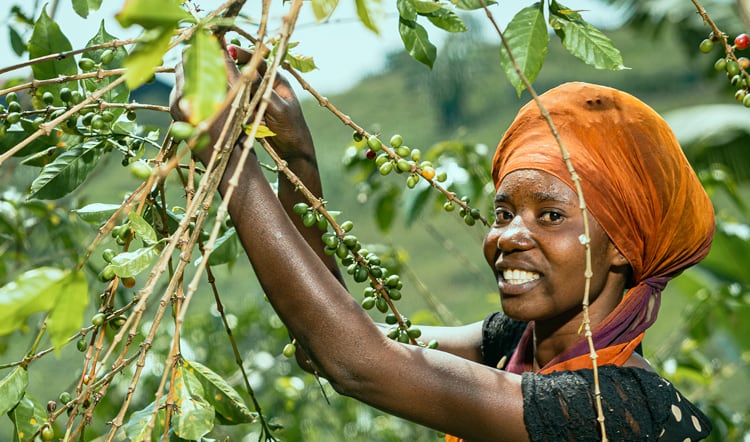Over the past decade, there has been a 10% increase in women entering the agricultural industry. From work in the field to scientific research and managing cutting-edge agri-tech, women are part of every aspect of the system.
My journey into agriculture wasn’t the traditional one of generational farming, it began with my interest in genetics. Following a degree in plant breeding, genetics, and biotechnology at Michigan State University, I am now director of agriculture, variety development and seed supply for McCain Foods North America.
At McCain, I work with potato breeders and researchers across the US and Canada, as well as counterparts in Europe, to commercialse new potato varieties. This work involves conducting trials across our locations in North America to assess sustainability, yield potential, and even the fry quality for customer approval.
I also lead our seed team to ensure we secure the seed needed to accelerate the adoption of our new varieties. Considering that one in four fries around the world is a McCain fry, the scale of this work is enormous!
I have been in the industry for over 14 years and I’m confident that women play a vital role in shaping the food industry, contributing significantly to its success. I’ve been fortunate to meet many amazing women who excel in their fields. However, we must continue working toward creating a welcoming space for all, breaking down barriers that might discourage women from pursuing careers in agriculture.
The ‘leaky pipeline’
Personally, I’ve always felt like my contributions were valued, but it hasn’t always been easy. By the time I joined McCain Foods, I had four children, but I had learned early on how difficult it could be for women in the workforce. For example, during my first pregnancy, my graduate advisor assumed that I would not be finishing my degree because of the baby, but I was determined to succeed and have both a career and a family.
One of the biggest challenges I’ve seen is the ‘leaky pipeline’ – when women leave their careers earlier than expected, often after having children or while raising them. While more women are joining STEM and agricultural programmes at an increased rate than previous decades, the support needed to help them succeed throughout their careers is often lacking. This lack of support is one of the biggest holes in the pipeline.
The lack of affordable and dependable childcare, from birth through school age, is a significant factor in this trend. It’s a major issue for working families trying to juggle career demands and family life. I’ve seen close friends, acquaintances and co-workers succumb to these pressures. Just as we all witnessed women taking on more caretaking responsibilities during the Covid-19 pandemic; more often it is the woman stepping back or out of their career.
A seat at the table
I’m proud that McCain is helping women employees grow within the company. We offer women’s coaching sessions and personal development opportunities. We’re working toward a goal of having 40% of our global leadership roles filled by women by 2026. Women currently make up 35% of these roles, so we are well on our way.
However, for the industry to progress further, we need more leadership targets like McCain’s to encourage women to strive for senior positions. We also need boards to require more than one woman to be at the table so there are more places for women to continue to rise to even higher levels of leadership.
Encouraging women to share their experiences is also crucial for attracting more women into the industry. It’s inspiring to see women at events and conferences, sharing their knowledge with rooms full of agricultural experts, but we must go further. Building a culture where everyone can thrive and feel supported requires ongoing effort and should be a priority for all businesses.
In my career, I aim to be a positive influence on women who are starting or are mid-stream in their journeys in agriculture. I want to encourage them to speak up about their achievements and be drivers of positive change. I look forward to seeing what the future holds for the agriculture industry and our beautiful (and often times chaotic) families!



